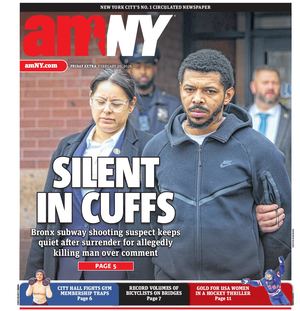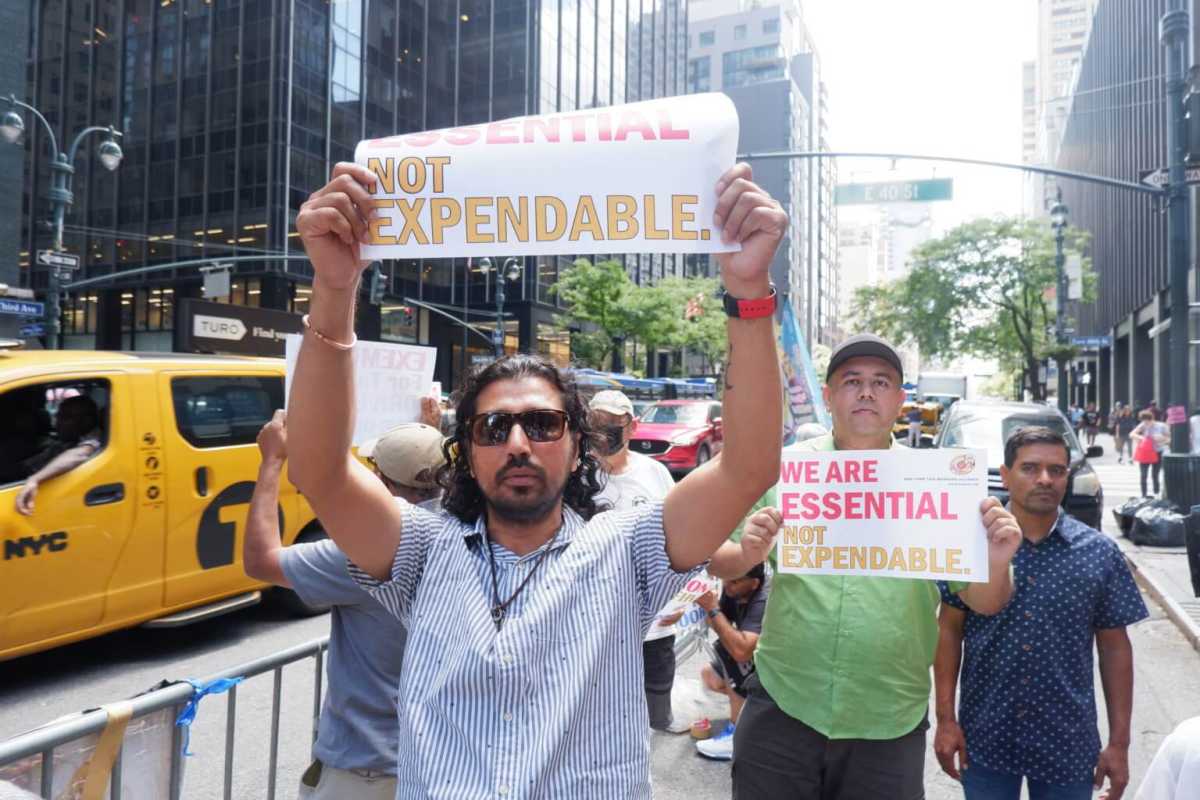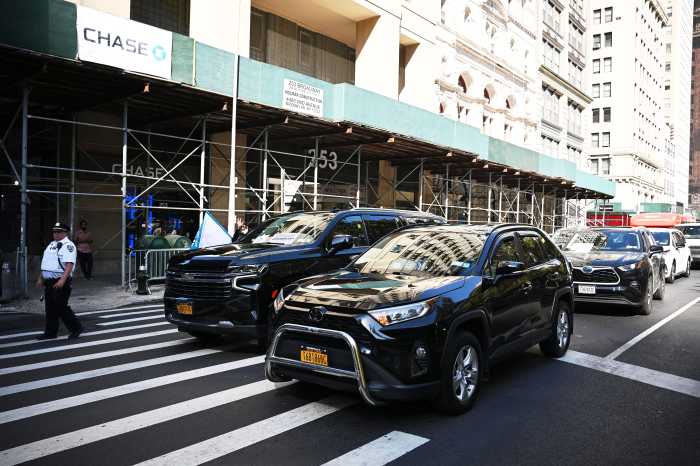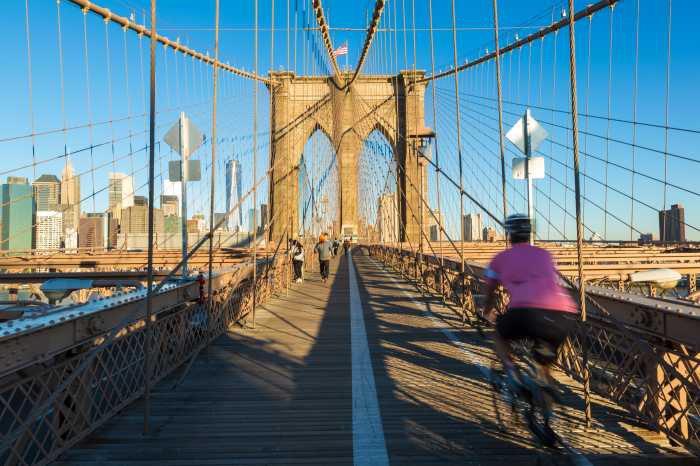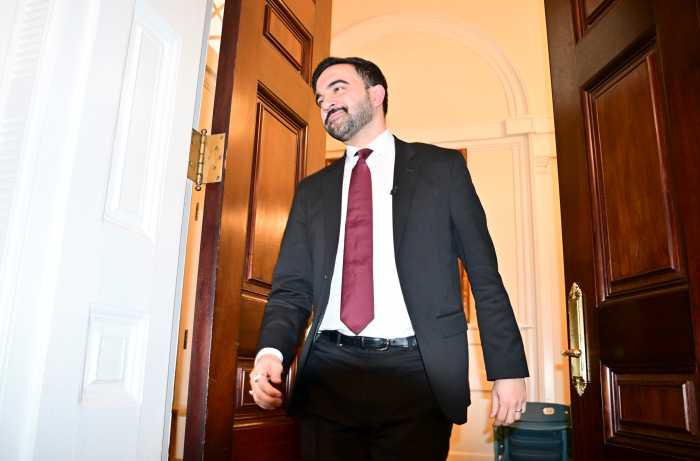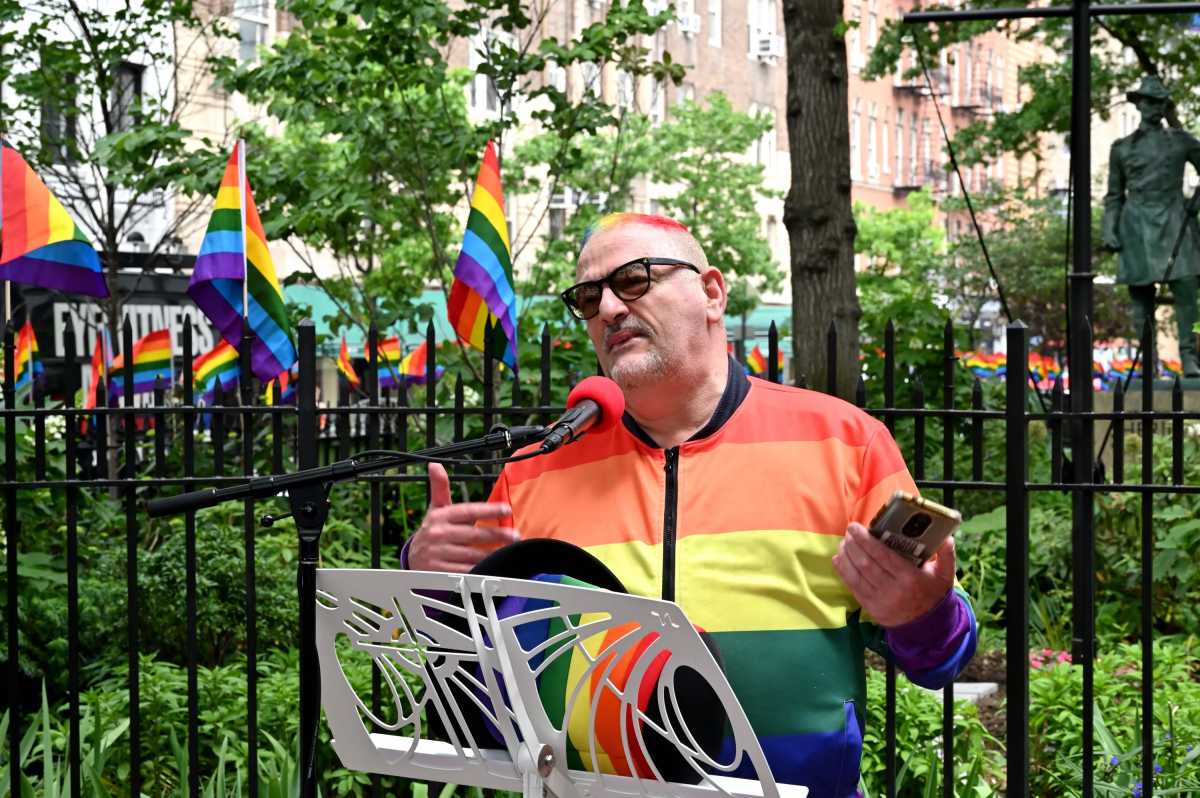As the race for Gracie Mansion continues, policies around New York City’s burgeoning rideshare driver community have emerged as a key issue among the public and elected officials. With thousands of drivers navigating the city’s streets, often working long hours for fluctuating wages, their concerns have already gained traction in City Hall with the introduction of a driver-protection bill.
NYC Council Member Shekar Krishnan, who represents parts of Queens including Jackson Heights and Elmhurst, sponsored Intro. 276, which is a bill that would prohibit rideshare companies from deactivating — essentially firing — for-hire drivers without just cause.
Krishnan said in an interview with amNewYork that his district is home to the largest taxi-driver population in NYC. Drivers have reported their concerns about the industry to him, including the issue of the deactivations.
“So many for-hire vehicle drivers approached my office so concerned about these tactics because they’ve experienced them,” he said.
The council member explained that the 14-day notice period in his bill would prevent rideshare platforms from “promptly” removing drivers who have been reported as engaging in unsafe conduct, which could be anything ranging from reckless driving to harassment, without due process.
“Intro. 276 gives New York City’s largest private sector workforce, app-based drivers, their power back, and we will pass this legislation,” he said. “We are a council that stands up for workers, not billion-dollar app companies.”
Ridesharing in NYC, led by companies like Uber and Lyft, has been a source of transportation for New Yorkers, but also economic opportunity and debate regarding worker protections. Drivers often operate as independent contractors, lacking traditional income. This has led local politicians who are already in office to call for increased regulations and safeguards, and the mayoral hopefuls are responding with varying degrees of support and specific policy adoptions.
Adams’ administration calls arbitrary deactivations “financially devastating”
Mayor Eric Adams, who on Sunday ended his campaign for a second-term in office, has a history of supporting NYC taxi drivers. During his time in office, he launched the Medallion Relief Program Plus, aimed at helping to provide debt relief for medallion owners.
As for Intro. 276, a spokesperson for the city’s Department of Consumer and Worker Protection, said the agency is “looking forward” to working with the council to make “effective” deactivation protections.
“Arbitrary or unfair deactivations are financially devastating for app-based workers,” the spokesperson said in a statement to amNewYork. “We are committed to fostering a culture of fair labor standards for all workers, especially those disproportionately impacted by arbitrary deactivations like for-hire vehicle drivers and app-based food delivery workers. At the hearing, we shared a number of recommendations to strengthen these protections, and we look forward to collaborating with the council and stakeholders to create effective standard deactivation protections for these workers.”
The spokesperson did not elaborate on their recommendations for fortifying rideshare protections.
Curtis Sliwa, Republican and Independent candidate in the mayoral race, has not put rideshare issues at the forefront of his campaign. However, he described the exorbitant costs of Uber and Lyft being out of reach for New Yorkers who choose car travel because they do not feel safe taking public transportation.
“Everyone in New York deserves to feel safe no matter the hour or destination,” he said on Sept. 3. “With Uber/Lyft prices out of control, the subway must be a place people can trust.”
Frontrunner in the campaign, NYS Assembly Member Zohran Mamdani, and candidate and former NYS governor Andrew Cuomo did not respond to requests for comment on this story.
Meanwhile, rideshare company executives and leaders from advocacy groups have been urging the NYC Council to kill Into. 276, at least as it is currently written.
Jerry Golden, chief policy officer at Lyft, sent a scathing letter to city lawmakers on Sept. 22, expressing the company’s “serious concerns” about the bill. He said that the bills, as it is, undermines public safety and puts New Yorkers at risk, especially since drivers know personal information about passengers, including pick-up and drop-off points that are often places of residence or work.
He added that the bill’s 14-day notice period would prevent rideshare platforms from “promptly” removing drivers who have been reported as engaging in unsafe conduct, which could be anything ranging from reckless driving to harassment.
Audrey Bird, president of the National Federation of the Blind of New York, echoed Golden’s concerns about public safety. Her organization is opposed to Intro. 276 due to what she described as the negative impact it would have on blind New Yorkers.
“As blind people, we face frequent discriminatory refusals of transportation by high-volume for-hire vehicle drivers because we use guide dogs, or simply because we are blind,” she wrote in an Aug. 8 letter to the council. “The National Federation of the Blind and other organizations promoting the interests of individuals who use guide dogs and other service animals have been advocating for the immediate and permanent deactivation of drivers who unlawfully discriminate against us.”
New York has laws in place throughout the state to ensure service dogs and their handlers can access transportation. In addition to the law, Bird explained that more than a decade of advocacy led to rideshare companies reminding drivers to accommodate riders with service animals.
Bird explained that companies have rolled out features that allow their driver platforms to alert drivers to the possible presence of a service animal, remind the drivers of their obligation to transport riders with service animals, and to detect and document when drivers refuse to transport riders with service animals.
Intro. 276 would “undo that work,” she said.
“It would also allow drivers who were deactivated for discriminatory denials to petition for reactivation,” she said. “Allowing drivers to discriminate without immediate sanction is an outrage. The blind, just as all members of the public, have a right to for-hire transportation only by drivers who follow the law.”
Other policies concerning taxi and rideshare drivers
Bhairavi Desai, executive director of the New York Taxi Workers Alliance, said that whichever candidate takes the reins as mayor should be one who put drivers before dollars.
“For Uber, Lyft, Waymo, and the private equity firms still refusing to restructure medallion debt, the ideal mayor is one they can buy with their billions,” she said. “The next mayor will need to be ready to stand up to these billionaire corporations and use their regulatory authority along with the bully pulpit to make material gains for drivers, and to champion their safety and work with dignity. Drivers are counting on a mayor who puts the rights of New York’s largest private sector workforce and the one million people who depend on their labor every day before corporate greed.”
She also singled out Lyft executives, whom she said are “spamming New Yorkers with lies” about Intro. 276, while calling out other rideshare companies for testing of driverless cars and opposition to minimum wage pay.
“Uber and Lyft want to keep lining their pockets while their drivers go to work each day with zero economic security, not knowing whether they’ll still have a job tomorrow, or whether they’ll be drowning in debt and left with no income overnight,” Desai said. “Meanwhile, Waymo is speeding through testing driverless cars when neither the technology nor the city’s social and economic network are ready for potential job loss for 200,000 workers.”
Ridesharing has grown to become a key issue in a city where transportation is vital and the gig-worker economy continues to increase. As the election draws closer, rideshare drivers and passengers will likely be watching closely to see which candidate aligns with their concerns the most.
